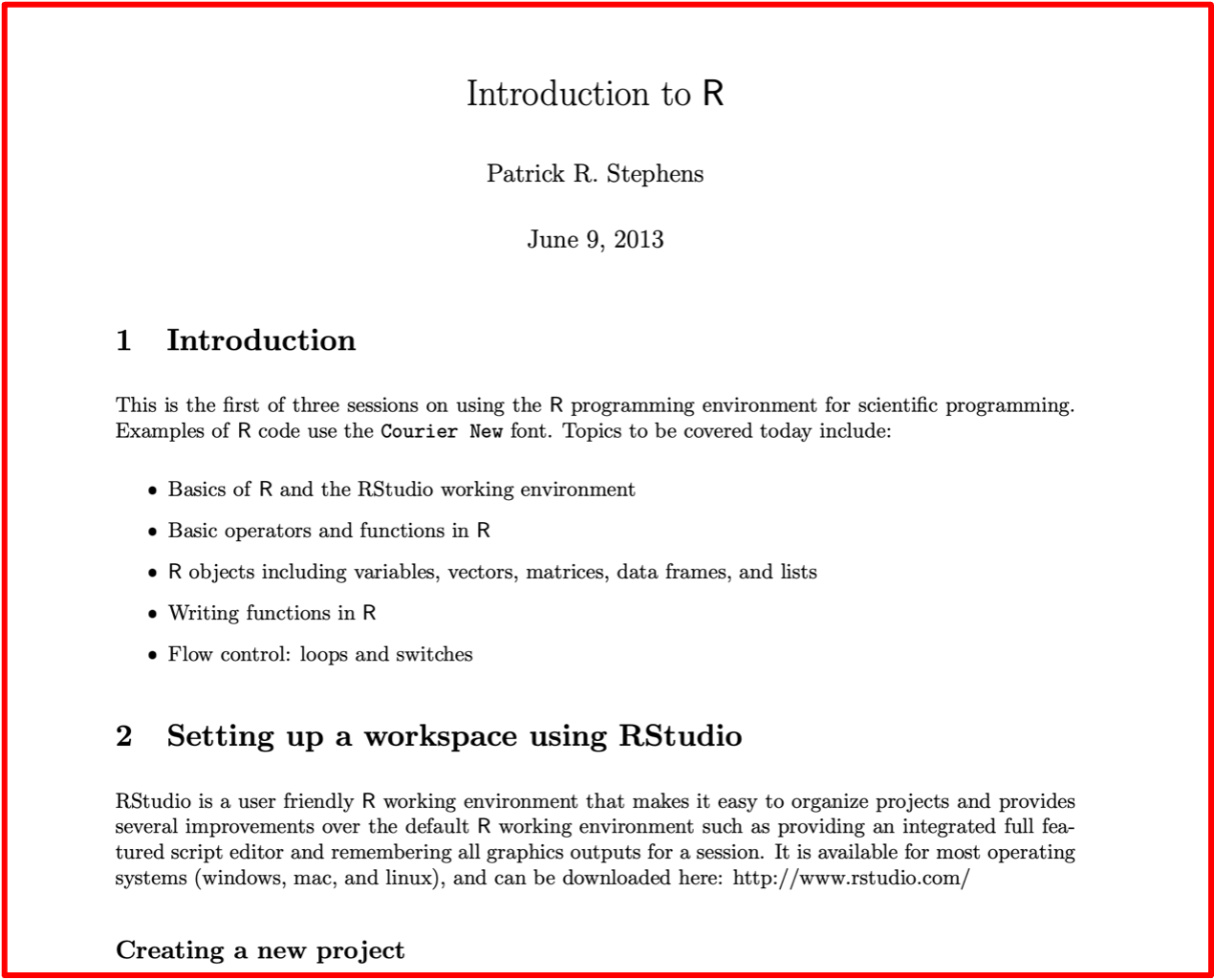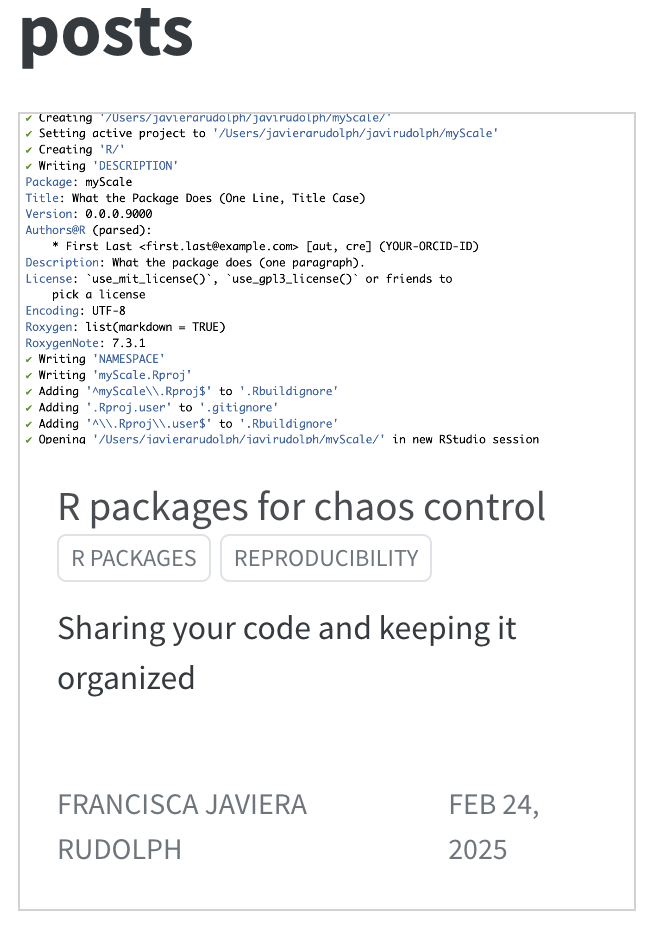Demystifying complex technical concepts: R packages
Building confidence through simplified learning
April 30, 2025
Hello, I’m Javi!
- Posit mentor since 2022
- Disease ecologist
- Believer in simplifying the complex
- Organizing stuff with packages since 2019

Why are we here today?
Building confidence through demystification
- As mentors, our job is to make complex concepts accessible
- Package development can seem like uncharted territory
- But it doesn’t have to be!
The ‘Complex Thing’: R Package Development
Why does it feel intimidating?
- “It’s only for R wizards and tidyverse experts”
- “Steep learning curve. There’s so much to learn at once”
- “I don’t have a computer science background – can I really do this?”
The Learner Experience
A LOT of overwhelm
- “Where do I even start?”
- “So many files and folders!”
- “DESCRIPTION, NAMESPACE… what are these?”
- “Documentation looks complicated”
Remember how YOU felt when you first learned about R packages!
My experience
Learning R over a decade ago with a pdf

My Approach to Teaching This
Reframing the Concept
Forget about an “R package” - think of organization
We are just organizing your work:
- Functions in logical files
- Documentation that’s useful
- Making code reusable
- Sharing with others
Context Matters
Start with “WHY”
- Why build a package?
- What problems does it solve?
- How will it make life easier?
- My blog on building a simple R package

Why Build a Package?
From the learners perspective
- Share reusable work
- Document utility functions
- Package widely used workflows
- Include example datasets with code
- Highlight sharing within teams!
Present a Small Win
Turn ONE function into a package
- Following first chapter in R Packages book
- Creates immediate sense of accomplishment
- Shows the core workflow in microcosm
Demo Time!
Live code in ~25 minutes
- Create package structure with
usethis::create_package() - Add a simple function from milestone (using
ifelsenotif_else) - Document with roxygen comments
- Build and check
- Install and use!
Keep it casual & relaxed - Show your mistakes and fixes - Demonstrate the iterative cycle
The Development Cycle
- Write/edit function
- Document (
Ctrl+Shift+D) - Load (
Ctrl+Shift+L) - Test in console
- Repeat!
What I Don’t Include (Yet)
Keeping it simple is key!
- Git/GitHub integration
- Can be taught separately
- Unit testing
- Introduce after basics are solid
- Complex dependencies
- Start with base R functions
The Mentoring Mindset
Co-exploration, Not Expertise Delivery
“I’m not here to have all the answers. I’m here to figure things out alongside you.”
- Create space for joint problem-solving
- “I forgot the order of
document()andload()”
- “I forgot the order of
- Normalizing not knowing everything
- Understanding outputs of
usethisand errors
- Understanding outputs of
- Build confidence through collaboration
- “Can someone tell me what our first function was?”
Celebrate Mini-Milestones!
- First working function
- First successful documentation
- First package install
- First time using your own package

Success Story
Manager who shared scripts but never built packages
- Initially intimidated by package development
- Attended a collaborative session like this
- Built a package for team utility functions
- Later hosted it on organizational GitHub
- Inspired others on the team!
Lessons Learned
- Version control + packages = too much at once
- Seeing a package built live is powerful
- Understanding packages ≠ having to build them
- Exploring others’ packages builds confidence
- Navigating GitHub packages
Discussion Time
Discussion Questions
Posted on retrotool board
How do you recognize and defuse fear in your learners?
What’s one topic you’ve hesitated to teach because it felt too complex?
What techniques do you use to simplify difficult material?
How could you take a complex topic and make it teachable?